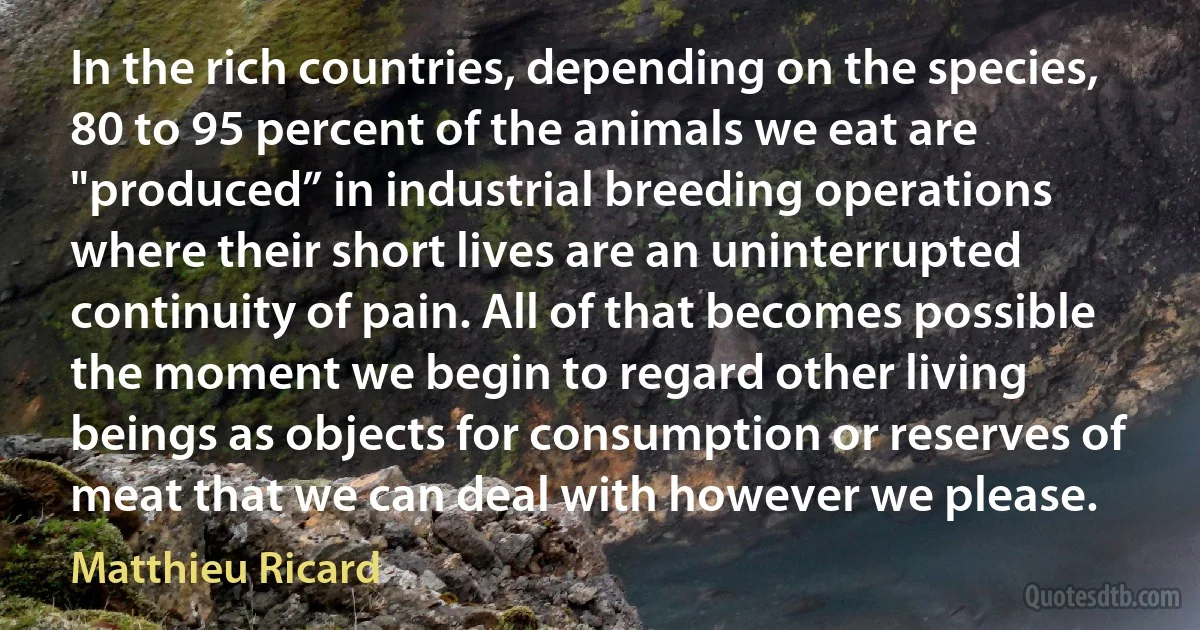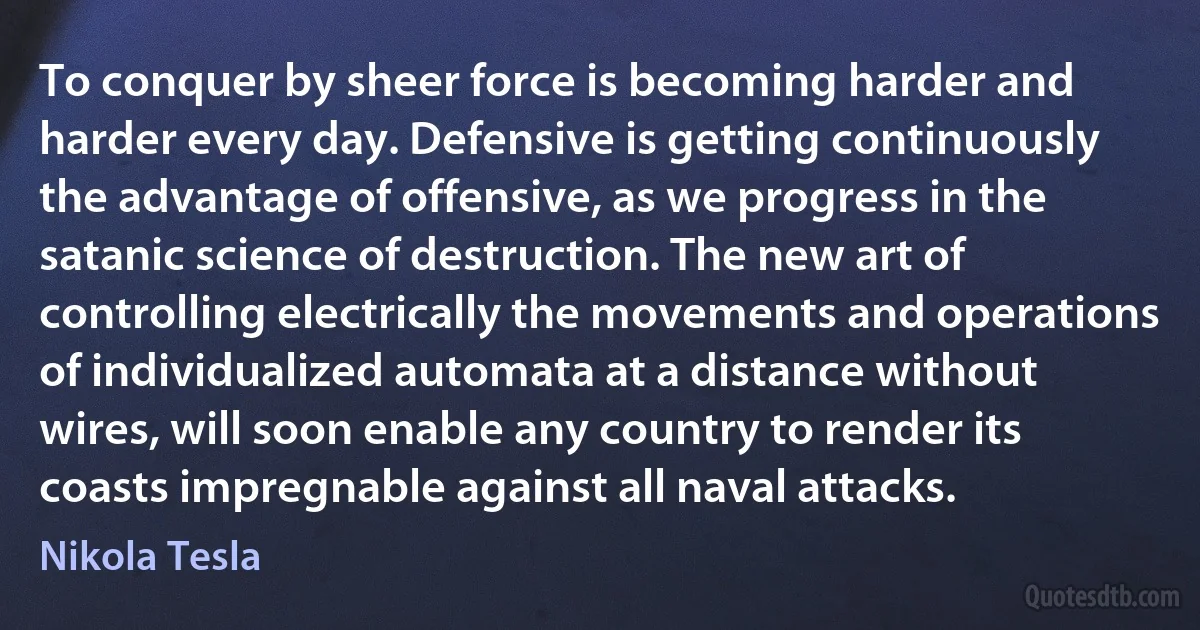Operations Quotes - page 9
The result of my work has been the most extraordinary, the most unforeseen, and the happiest, that ever was; for, after having performed all the equations, multiplications, antitheses, and other operations of my method, and having finally finished the problem, I have found that my principle gives exactly and precisely the same proportion for the refractions which Monsieur Descartes has established.

Pierre de Fermat
Warfare with the use of aviation and military hardware and so on, a huge number of militant groups on the territory of this country, with militants coming mostly from terrorist organisations based abroad, including Al-Qaeda who were active in this country. Thank God, we got rid of this but we have not eradicated terrorism per se. Of course, terrorism still poses a great threat to our country as well, which was why we launched these operations in Syria...

Vladimir Putin
For some years before us, countries that agreed to participate in these anti-terrorist operations, most often voluntarily, and maybe even with less than perfect goals and objectives – what result have we seen in the previous three years? None. While we have liberated almost 95 percent of the entire territory of the Syrian Republic. This is my first point. Second. We supported Syria's statehood, prevented the state from collapsing. True, there are still many problems.

Vladimir Putin
It is the habit of the boa constrictor to besmear the body of his victim with a foul slime before he devours it; and there are many people in England, and perhaps elsewhere, who seem to be unable to contemplate military operations for clear political objects, unless they can cajole themselves into the belief that their enemy are utterly and hopelessly vile. To this end the Dervishes, from the Mahdi and the Khalifa downwards, have been loaded with every variety of abuse and charged with all conceivable crimes. This may be very comforting to philanthropic persons at home; but when an army in the field becomes imbued with the idea that the enemy are vermin who cumber the earth, instances of barbarity may easily be the outcome. This unmeasured condemnation is moreover as unjust as it is dangerous and unnecessary.

Winston Churchill
We have already various treatises on Mechanics, but the plan of this one is entirely new. I intend to reduce the theory of this Science, and the art of solving problems relating to it, to general formulae, the simple development of which provides all the equations necessary for the solution of each problem. I hope that the manner in which I have tried to attain this object will leave nothing to be desired. No diagrams will be found in this work. The methods that I explain require neither geometrical, nor mechanical, constructions or reasoning, but only algebraical operations in accordance with regular and uniform procedure. Those who love Analysis will see with pleasure that Mechanics has become a branch of it, and will be grateful to me for having thus extended its domain.

Joseph Louis Lagrange
We believe it is imperative that farm laborers, among the most abused and neglected of all American workers, be included at last among those who benefit from the Fair Labor Standards Act. We want coverage extended to include those millions in retail trades, laundries, hospitals and nursing homes, restaurants, hotels, small logging operations and cotton gins who still work for starvation wages.

Martin Luther King Jr.
Every man who labored for the rebellion in the field, who murdered Union prisoners by cruelty and starvation, who conspired to bring about civil war in the loyal states, who invented dangerous compounds to burn steamboats and northern cities,, who contrived hellish schemes to introduce into northern cities the wasting pestilence of yellow fever, calls himself a Democrat. Every dishonest contractor who has been convicted of defrauding the government, every dishonest paymaster or disbursing officer who has been convicted of squandering the public money at the gaming table or in gold gambling operations, every officer in the army who was dismissed fur cowardice or disloyalty, calls himself a Democrat.

Oliver P. Morton
[The consequences of] beliefs that go against the providence of a perfectly good, wise, and just God, or against that immortality of souls which lays them open to the operations of justice.... I even find that somewhat similar opinions, by stealing gradually into the minds of men of high station who rule the rest and on whom affairs depend, and by slithering into fashionable books, are inclining everything toward the universal revolution with which Europe is threatened, and are completing the destruction of what still remains in the world of the generous Greeks and Romans who placed love of country and of the public good, and the welfare of future generations before fortune and even before life.

Gottfried Leibniz
What a pity and what a poverty of spirit, to assert that beasts are machines deprived of knowledge and sentiment, which affect all their operations in the same manner, which learn nothing, never improve, &c. [...] Some barbarians seize this dog, who so prodigiously excels man in friendship, they nail him to a table, and dissect him living, to show the mezarian veins. You discover in him all the same organs of sentiment which are in yourself. Answer me, machinist, has nature arranged all the springs of sentiment in this animal that he should not feel? Has he nerves to be incapable of suffering? Do not suppose this impertinent contradiction in nature. [...] The animal has received those of sentiment, memory, and a certain number of ideas. Who has bestowed these gifts, who has given these faculties? He who has made the herb of the field to grow, and who makes the earth gravitate towards the sun.

Voltaire
The whole science of heat is founded Thermometry and Calorimetry, and when these operations are understood we may proceed to the third step, which is the investigation of those relations between the thermal and the mechanical properties of substances which form the subject of Thermodynamics. The whole of this part of the subject depends on the consideration of the Intrinsic Energy of a system of bodies, as depending on the temperature and physical state, as well as the form, motion, and relative position of these bodies. Of this energy, however, only a part is available for the purpose of producing mechanical work, and though the energy itself is indestructible, the available part is liable to diminution by the action of certain natural processes, such as conduction and radiation of heat, friction, and viscosity. These processes, by which energy is rendered unavailable as a source of work, are classed together under the name of the Dissipation of Energy.

James Clerk Maxwell
All true metaphysics is taken from the essential nature of the thinking faculty itself, and therefore in nowise invented, since it is not borrowed from experience, but contains the pure operations of thought, that is, conceptions and principles à priori, which the manifold of empirical presentations first of all brings into legitimate connection, by which it can become empirical knowledge, i.e. experience. ...mathematical physicists were thus quite unable to dispense with such metaphysical principles...

Immanuel Kant
The ancients considered mechanics in a twofold respect; as rational, which proceeds accurately by demonstration, and practical. To practical mechanics all the manual arts belong, from which mechanics took its name. But as artificers do not work with perfect accuracy, it comes to pass that mechanics is so distinguished from geometry, that what is perfectly accurate is called geometrical; what is less so is called mechanical. But the errors are not in the art, but in the artificers. He that works with less accuracy is an imperfect mechanic: and if any could work with perfect accuracy, he would be the most perfect mechanic of all; for the description of right lines and circles, upon which geometry is founded, belongs to mechanics. Geometry does not teach us to draw these lines, but requires them to be drawn; for it requires that the learner should first be taught to describe these accurately, before he enters upon geometry; then it shows how by these operations problems may be solved.

Isaac Newton
The natural effort of every individual to better his own condition, when suffered to exert itself with freedom and security is so powerful a principle that it is alone, and without any assistance, not only capable of carrying on the society to wealth and prosperity, but of surmounting a hundred impertinent obstructions with which the folly of human laws too often incumbers its operations; though the effect of these obstructions is always more or less either to encroach upon its freedom, or to diminish its security.

Adam Smith



